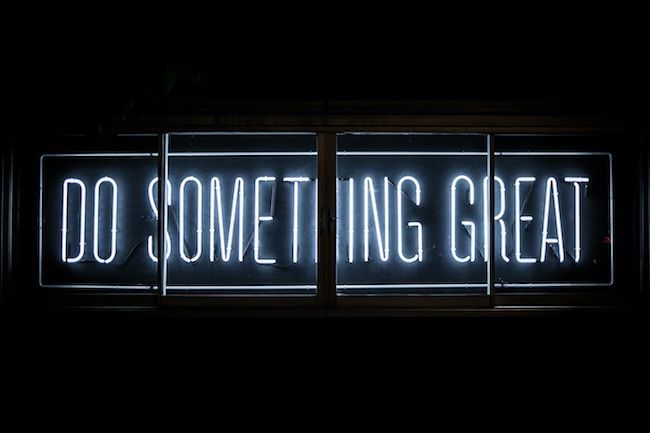Blog
Blog
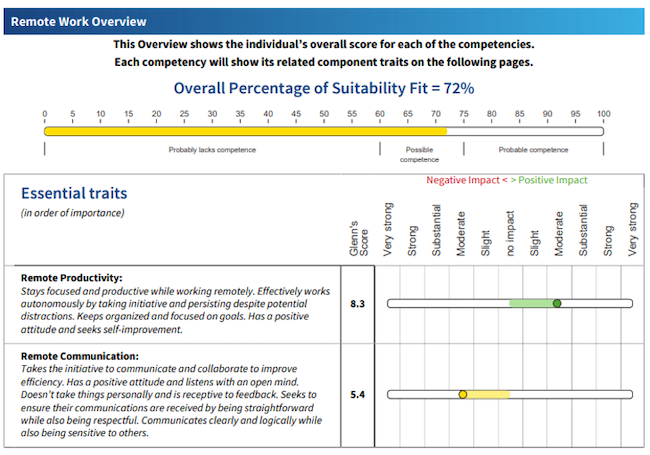
By Glenn Brien
•
28 Sep, 2023
The Covid 19 pandemic changed our relationship to the office. Some people thrive with remote or hybrid work arrangement, whilst for others it’s more challenging. Harrison Assessments have released a “Remote Working (Behavioural) Analysis”. This analysis identifies a balance of behavioural traits that are likely to help someone succeed working remotely – in terms of productivity and communication. The intent is to help managers support remote and hybrid employees. We also know that this shift has given many leaders and employees the opportunity to review their thinking about remote working and what role, if any, it will play in the future. This analysis will give you a better understanding of how well your workforce is positioned to work remotely into the future and what are the opportunities but also challenges that this might bring.

By Glenn Brien
•
28 Sep, 2023
In order to measure culture, you need to know what you’re measuring, but also how the results will be used. Your measurements should be purpose-driven and aligned to your values. Toxic cultures often form when behaviours that aren’t aligned to your purpose and values are tolerated, celebrated, or rewarded through incentive schemes or financial remuneration.
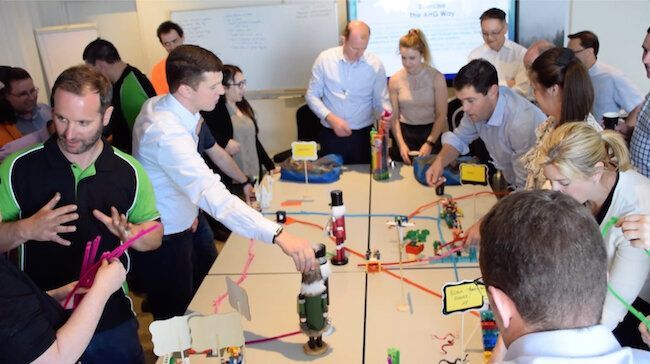
By Glenn Brien
•
28 Sep, 2023
To fit in, is a deeply rooted psychological need and a powerful motivator. Consider an experiment by Harvard Business School’s Alison Wood Brooks; You are standing in the rain at a train station. A stranger approaches and politely says, “Can I borrow your phone?”. In the experiment, a second group of strangers were approached politely with the alternative statement; “I’m sorry about the rain. Can I borrow your phone?”. With the addition of this single statement (that author of “ The Culture Code ”, Daniel Coyle calls a belonging cue), over four times as many people handed over their phone!

By Glenn Brien
•
28 Sep, 2023
Leaders often tell me, “Culture is on our list, but we need to fix our processes first. We’ll get to culture when things settle down”. But guess what, things never seem to settle down. No matter how well defined the systems become, they remain broken and ineffective because the people executing them often don’t do what they should. The business continues to operate in fire-fighting mode, lurching from one crisis to the next.

By Glenn Brien
•
28 Sep, 2023
181 CEOs of America's leading corporations have recently redefined the definition of a corporation from maximising shareholder value (ie: profit) to maximising STAKEHOLDER value (ie: for customers, employees, vendors, community as well as shareholders). This echoes the shift we're seeing as more and more businesses want to be a force for good - becoming PURPOSE driven - not profit driven.
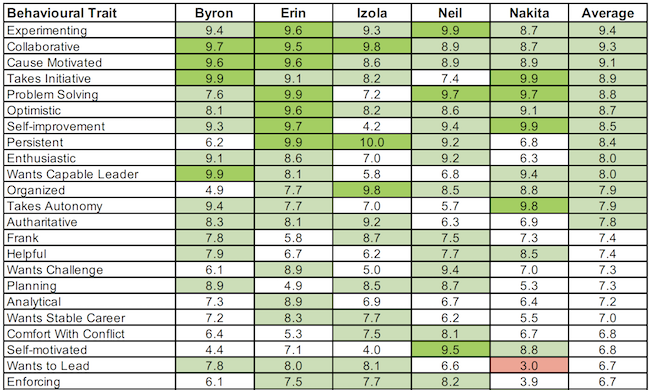
By Glenn Brien
•
28 Sep, 2023
Do you have a Unique Culture Proposition (UCP)? You’ve probably heard of the term USP, your Unique Selling Proposition – the idea that customers should see something unique in what you offer. But what about culture? What makes your culture unique and does uniqueness really matter? Most companies have values, but they are “dead values”, not lived and not contributing anything to the culture. Your company values, when lived, are a powerful component of your culture and are one expression of your UCP. But even having company values is controversial - Brian Roberson, the creator of Holacracy, talks about what he calls the “dark side of values”. His premise is that defining a value (eg: adaptability), implies that you “de-value” its opposite (eg: stability) and that in some situations, that opposite might be more appropriate. Whilst I have great respect for Brian and the self-management movement (often called Teal), I disagree on this point. I think, it very much depends on how and why the values were created, and the depth to which they are developed. The problem is that most company values are not well-designed. Here are the 4 biggest mistakes companies make when defining their values; Mistake #1 - Values that are just 3R values Most values are created simply to reflect the 3R’s – ie: a “Reasonable, Responsible and Responsive person”. Often, they are expressed as one-word values, like “teamwork” or “communication”. I call these hygiene values that every company will need, in order to succeed in today’s hyper-competitive world. Also, single word values don’t give your mind a “how to” hook. For example, “Be Curious” is a better value than “Creativity” because it’s more specific and tells you what to do. Mistake #2 - Values that don’t serve your purpose Most values are not created to serve the company’s purpose. It should be very clear to all your employees, that if they conduct themselves in line with your values, their actions will further your company’s purpose. Of course, this pre-supposes that you have a purpose . The combination of your purpose and values that serve your purpose, become a filter for guiding decisions and working together. Mistake #3 - Values that don’t reflect “who you really are” Your values should reflect your unique organisational DNA. The experience your customers have with your brand is strongly influenced by your employees – and their ability to deliver that experience is shaped by your culture. As with a USP, you want your UCP to shine through to your customers so that they see something different to your competitors. We’ve collected a library of over 300 values and whilst there are common themes, the combination of 4 or 5 values that you craft for your company, should be unique to you. To design a value that genuinely reflects your DNA, using a behavioural analytics tool to can really help. The figure below, is a Harrison Assessment extract for a company’s leadership team:

By Glenn Brien
•
28 Sep, 2023
When my wife was learning to windsurf, she encountered a dead duck on the lake. Her mantra at the time was “don’t hit the dead duck, don’t hit the dead duck”. But even though she wanted to avoid it, she was looking straight at it. In windsurfing as in surfing and skiing, where the head leads, the body follows, so unwittingly, she steered straight into the dead duck she was so intent on avoiding.
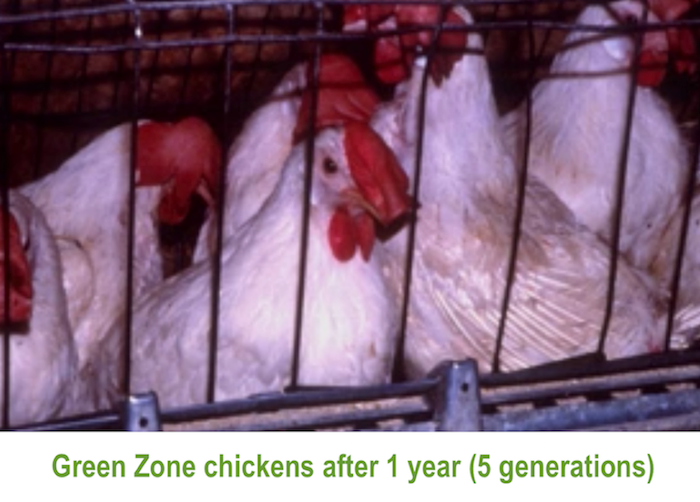
By Glenn Brien
•
28 Sep, 2023
So, are you a red zone chicken or a green zone chicken? Huh? Well, let me explain. Bill Muir from Purdue University ran an experiment breeding chickens for egg production. He found star performing chickens, but they tended to be aggressive and he wondered if they were rising to the top by suppressing the other chickens. So, he grouped the chickens into red zone chickens (who were aggressive to their peers) and green zone chickens (who were friendly to their peers: ie: collaborative). He took the best egg producers from each zone and bred them, measuring egg production and mortality rates for each zone. After 1 year (5 generations), the egg production for the green zone (collaborative) chickens was up 260%, but the red zone chickens had decimated themselves and killed half their peers.
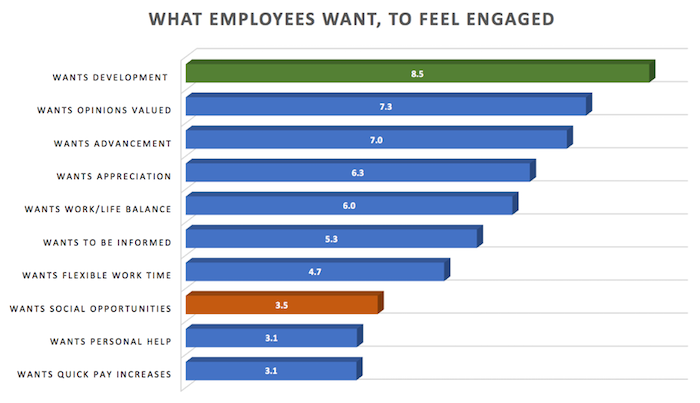
By Glenn Brien
•
28 Sep, 2023
Valuable as social connection initiatives are for building relationships, they just aren’t as important as you might think! Being naturally introverted myself, I was curious to see what the data says. So, I selected 100 random employees and leaders from 7 companies out of recent Harrison surveys we’ve conducted at Salple and looked at how people ranked factors known to be drivers of engagement.
Organisational Culture
Recruitment and Retention
Culture Code
Product - Salpulse
Salple
+61 (0)41-830-1954
Melbourne (Dromana), Vic
AUSTRALIA
3936


